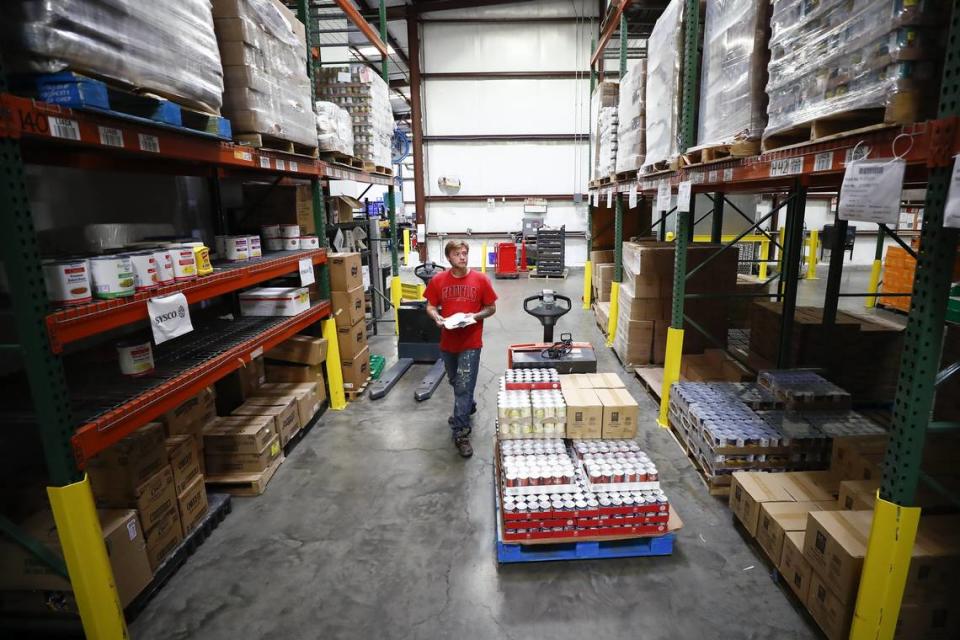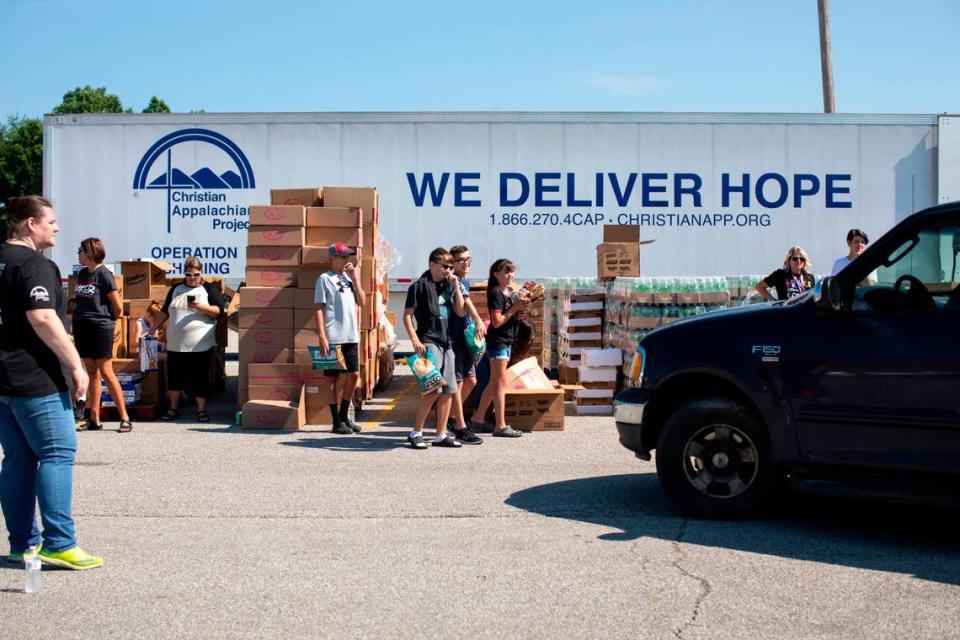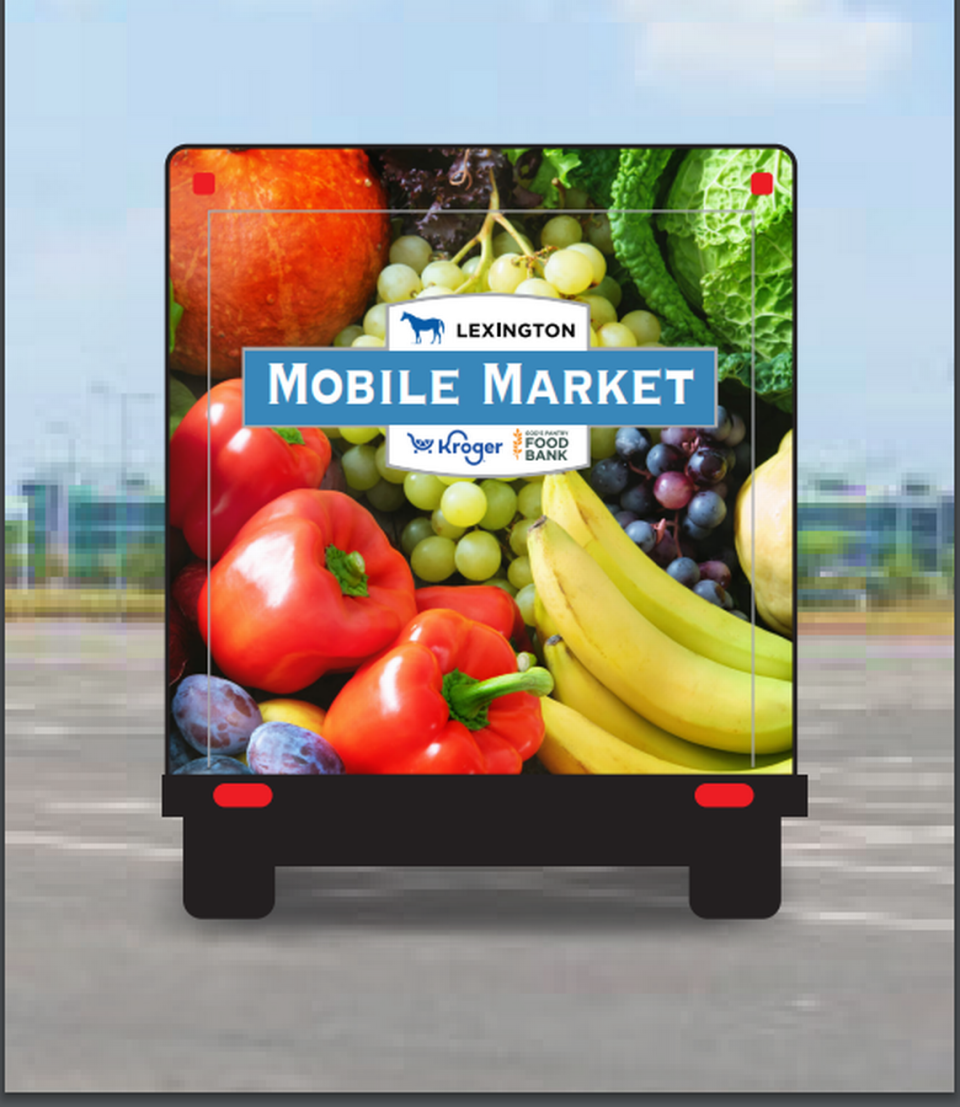‘New records every month.’ Organizations say food insecurity on the rise in Kentucky
Thousands of Kentuckians are experiencing food insecurity at a time when inflation is high, pandemic-era benefits have ended and the newest debt deal puts many Kentuckians at risk of losing assistance.
In 2021, over 500,000 Kentuckians were considered food insecure and many areas of Eastern Kentucky had over 20% of the population living in food insecurity, according to the latest data released in June from Feeding America, the nation’s largest domestic hunger relief organization.
Researchers and organizations fighting food insecurity find that the rate is now higher and could become worse in coming months.
“This release of Map the Meal Gap comes at a critical time, as most COVID-era programs that supported those in need have now expired,” Tom Summerfelt, Chief Research Officer of Feeding America, said. “That, coupled with elevated levels of inflation, may be a recipe for food insecurity to increase again if we don’t expand efforts to ensure everyone has access to the food and resources they need to thrive.”
The need for food assistance in Kentucky is increasing
Food banks and nonprofits are already struggling to handle the rapidly increasing demand for food following changes in medicaid requirements and reduction of Supplemental Nutrition Assistance Program benefits, Alison Gustafson, Director of UK Food and Health Alliance, said.
God’s Pantry Food Bank, a nonprofit organization that serves 50 counties in Central and Eastern Kentucky, has seen a substantial increase in the need for food assistance since the coronavirus pandemic, Michael Halligan, CEO of God’s Pantry Food Bank, said.

Prior to the pandemic, God’s Pantry was serving about 500 households in Fayette County, but the number fell to 350 households in the middle of the pandemic when SNAP benefits were expanded and households were receiving stimulus packages, Halligan said.
Now that economic support programs have ended and inflation has increased, the number of Fayette County households served by the pantry has grown to 625, over 20% higher than before the pandemic, Halligan said.
FoodChain, an organization working to increase access to fresh food while teaching sustainable food systems, noticed the number of people seeking assistance dropped in 2021, but has continued to climb since, Leandra Forman, Co-Executive Director of Food Chain, said.
The organization, which routinely provides about 450 meals to the community right from their front door, has seen more people showing up to receive food, Kristin Hughes, Co-Executive Director of Food Chain, said.
“Our numbers are hitting new records every month,” Forman said. “We have a dedicated staff and committed community partners that are working to fill in the gaps while were seeking more sustaining funding.”
SNAP requirements and price inflation contribute to growing need
Kentucky has the second highest rate of food insecurity in people ages 50-59, according to Feeding America.
The recent debt deal that expanded work-reporting requirements for SNAP to include people ages 50-54 could cause 13,000 older Kentuckians to lose food aid, according to the Kentucky Center for Economic Policy.
“SNAP is our number one tool when it comes to fighting hunger in Kentucky,” Jessica Klein, author at the Kentucky Center for Economic Policy, said. “Losing benefits can potentially increase food insecurity and really put a lot of older adults’ health at risk.”
Research shows that work requirements do not help people get back to work, Halligan said regarding the debt ceiling agreements. However, SNAP serves as a “nutrition bridge” that enables people to function well in job interviews and in seeking employment.
“I don’t know that it will do anything other than make it more difficult for people who need food, to get food,” Halligan said.
Although food banks can’t make up for the amount of meals that are lost if SNAP benefits decline, God’s Pantry will be there to provide food for people when they need assistance, Halligan said.
Decreased SNAP funds and high grocery prices have made food accessibility more difficult, Carolyn Lindsey, Grateful Bread Food Pantry Program manager in Rockcastle County, said.
While the inflation rate has started to cool over the last year, food prices still rose 6.7% between May 2022 and May 2023, according to data from the Bureau of Labor Statistics.
The inflation of grocery prices has been the biggest contributor to the increase in people utilizing the Grateful Bread Food Pantry, Lindsey said.
Many people will visit the pantry to get what they need for free before going to a grocery store to get the rest of their food, Lindsey said.

The pantry is a part of the Christian Appalachian Project, a nonprofit organization that provides hunger and poverty relief to people in all 13 states of the Appalachian region.
In 2021, the pantry noticed numbers of people utilizing the food assistance dropped slightly, but now numbers are starting to increase again, Lindsey said.
“We believe we’re going to start seeing an increase in our numbers from here on out,” Lindsey said.
New programs to prevent food insecurity
The severity of food insecurity in the state requires multiple organizations working in a variety of areas to fulfill needs, Gustafson said.
The University of Kentucky’s new Food as Health Alliance is leading a pilot program to prescribe food as medicine to Kentuckians dealing with health conditions like hypertension and Type 2 diabetes.
“There’s tons of research that shows those who are food insecure are two to three times more likely to develop Type 2 diabetes, but conversely those who have diabetes are also more likely to be food insecure,” Gustafson said.
The program will research comparative models of food as medicine packages like grocery prescription programs and tailored meal kits.
In partnership with Instacart, the program will test one model that provides people with a $50 voucher to be spent on eligible healthy food items that will be delivered to their door. This model will be tested on pregnant women and adults 18-64 on Medicaid who have Type 2 diabetes.
Since Instacart is unavailable in Eastern Kentucky, DoorDash will deliver the meal kits, Gustafson said.
The program is funded by Kentucky Association of Health Plans and will be tested in Floyd, Harlin, Hazard, Lexington and Louisville.
Mayor Linda Gorton announced that Lexington will be rolling out a Mobile Market in July to serve neighborhoods that don’t have access to grocery stores or fresh foods.
The mobile market aims to increase food access and improve healthy food options, Tiffany Brown, the City’s Equity and Implementation Officer, said.
“One of the challenges for healthy food options is getting larger corporations to invest in neighborhoods,” Brown said. “We have not seen that investment as the city continues to grow.”

The market will be operated by God’s Pantry out of a 60-foot trailer stocked by The Kroger Co. with fresh fruits, vegetables, milk, chicken, beef, pork, deli meat, cheese, yogurt and household products, according to the release.
The market will accept payments by debit, credit and SNAP cards.
The city will receive reports every six months from God’s Pantry and Kroger about the stops, number of transactions and types of groceries purchased, Brown said. That data can be given to corporations and companies to encourage investment in Lexington.

